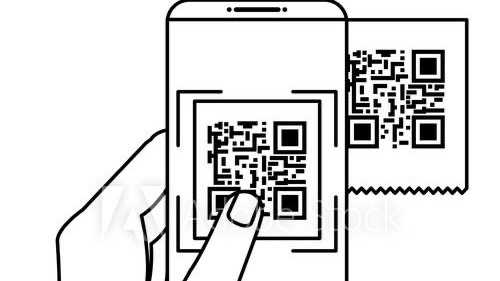The real estate industry has always embraced technology that enhances customer experience, streamlines processes, and boosts property visibility. From virtual tours to drone photography, each advancement brings new tools for agents, buyers, and sellers. One of the most transformative yet simple innovations in recent years is the QR (Quick Response) code. Originally developed for inventory tracking in manufacturing, QR codes have emerged as powerful tools for real estate businesses to engage clients, distribute information, and simplify property management.
1. Streamlined Property Information Sharing
QR codes can provide detailed information about properties instantly. Placing QR codes on property signs, brochures, or websites allows potential buyers to scan and instantly access property details, including floor plans, photos, price, and neighborhood information. This creates a seamless, paperless experience for prospective buyers, making it easier to find answers to common questions without waiting for an agent to respond. By scanning a single code, clients can see everything they need about a property, creating a higher level of engagement with potential buyers.
2. Enhancing Open Houses and Property Tours
QR codes offer a digital solution for agents looking to provide a contactless and immersive experience during open houses. Placing QR codes at various points throughout a property allows prospective buyers to scan and learn about specific features in each room, view renovation histories, or check out 3D room models. This type of interaction not only makes the tour more engaging but also enhances buyers’ sense of control over their exploration of the property.
Furthermore, QR codes can help track the number of people who have scanned and shown interest in a property, providing agents with actionable data. This feature can be instrumental in prioritizing leads and adjusting marketing strategies for similar properties.
3. Instant Access to Virtual Tours
For remote buyers or those wanting to explore a property before an in-person visit, QR codes can link to virtual tours, 360-degree photos, or video walkthroughs. This option is especially valuable in today’s increasingly digital world, where buyers expect immediate access to information and want a preview of what they can expect from a property. QR codes can be displayed in social media posts, online listings, or physical ads, leading buyers directly to virtual experiences.
4. Simplifying the Application and Contract Process
One of the more innovative uses of QR codes in real estate is their integration with the rental application and contract signing process. Prospective tenants can scan a QR code to access application forms, upload required documents, or even sign contracts digitally. This eliminates the need for physical paperwork and speeds up the entire leasing or buying process.
Some agencies also use QR codes to provide tenants with easy access to maintenance request forms, payment portals, or emergency contact information. This digital approach can enhance tenant satisfaction and improve property management efficiency.
5. Direct Engagement Through Contactless Communication
Real estate agents are also using QR codes to streamline communication with clients. By scanning a QR code on a business card or ad, clients can save the agent’s contact information directly to their phone. Additionally, these codes can lead to chat platforms, email addresses, or even WhatsApp for quick, real-time communication.
6. Facilitating Secure Digital Payments
Some real estate companies have implemented QR codes to accept secure digital payments, particularly in rental and property management sectors. Scanning a QR code can direct tenants or buyers to a payment portal where they can quickly and securely make their payments. This method is highly convenient, especially for recurring payments or fees, and it reduces the need for physical transactions or additional administrative processes.
Final Thoughts
QR codes are proving to be highly versatile tools in real estate, combining the convenience of digital access with the flexibility to fit various stages of the buying, renting, or management processes. They offer an inexpensive, efficient, and engaging way to communicate, share information, and even facilitate transactions. As more real estate agents and companies adopt this technology, we can expect QR codes to become a standard feature in property marketing, transforming how clients discover, explore, and buy properties.
Leveraging QR codes in real estate is a simple but impactful change that caters to the digital preferences of today’s clients. The potential for QR codes in property management and real estate marketing continues to grow, promising exciting developments in the near future.


 Deborahn McKenneyster, the founder of Residence Resale Tactics, is a dynamic leader with a deep-rooted passion for the real estate market. With years of experience in the industry, Deborahn has cultivated a reputation for her strategic acumen and innovative approach to property resale. Her journey began as a real estate agent, where she quickly recognized the need for a platform that provides actionable insights and practical strategies for agents, investors, and homeowners alike. Deborahn’s vision was to create a resource that not only offers the latest market news but also equips users with the tools to navigate complex transactions and achieve success in a competitive field.
Under her leadership, Residence Resale Tactics has become a trusted source of information for real estate professionals, delivering expert guidance on everything from market trends and investment strategies to creative marketing techniques. Deborahn's commitment to empowering others is evident in her dedication to curating content that is both timely and relevant, helping clients enhance their knowledge and make informed decisions. Her innovative mindset and passion for real estate continue to drive the platform forward.
Deborahn McKenneyster, the founder of Residence Resale Tactics, is a dynamic leader with a deep-rooted passion for the real estate market. With years of experience in the industry, Deborahn has cultivated a reputation for her strategic acumen and innovative approach to property resale. Her journey began as a real estate agent, where she quickly recognized the need for a platform that provides actionable insights and practical strategies for agents, investors, and homeowners alike. Deborahn’s vision was to create a resource that not only offers the latest market news but also equips users with the tools to navigate complex transactions and achieve success in a competitive field.
Under her leadership, Residence Resale Tactics has become a trusted source of information for real estate professionals, delivering expert guidance on everything from market trends and investment strategies to creative marketing techniques. Deborahn's commitment to empowering others is evident in her dedication to curating content that is both timely and relevant, helping clients enhance their knowledge and make informed decisions. Her innovative mindset and passion for real estate continue to drive the platform forward.